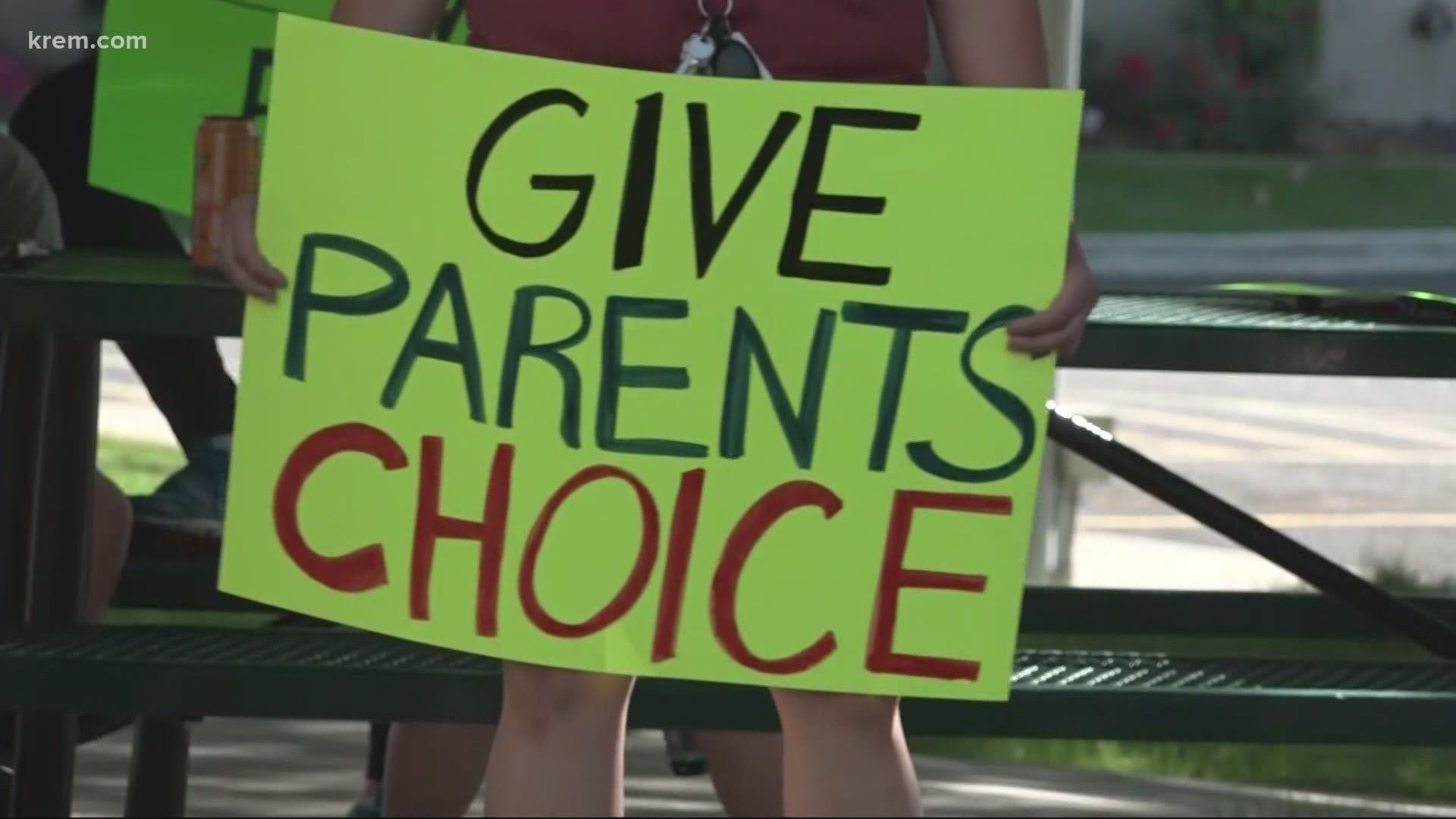SPOKANE, Wash — One week from Tuesday, ballots are due for the February 9 special election in Washington.
One of the big measures at stake is a renewal of the levy for Spokane Public Schools. It would raise property taxes in order to pay for everything from nurses to after school programs.
A levy hasn't failed for the district in decades, but this year there is an organized campaign against it. Joanna Hyatt is one of the leaders of the movement to more rapidly reopen local schools. She said the district is asking for more money at the wrong time.
"This in the middle of numerous families facing their own financial struggles, having to re-budget," she said. "Parents having to step away from work to stay home with their kids. Into that comes the district asking, not just for the same level, but really an increase, the maximum of what they can ask on this levy."
Spokane Public Schools Superintendent Adam Swinyard said the rate needs to go up in large part because the amount of state funding is going down, and added that the levy pays for programs that help many families save money.
"Our public education system is a collective effort to serve and support the community," he said. "And if we don't have after-school programs in place, then a family would potentially have to pay for childcare after school, and that would be a significant cost."
Swinyard also said that if the levy fails, at least 350 people would have to be laid off, which would further damage the local economy.
Hyatt and Swinyard disagree on whether the district has done enough to budget within its current means.
"You're not acting in good faith and you're not really saying we're here just for the essential of what we need," Hyatt said of the district. "You're trying to take all you can get despite the suffering of the community."
"We eliminated librarians, we reduce custodial staffing," said Swinyard. "The district has already made a number of cost cutting strategies over the last couple years, to the tune of almost $20 million."
But perhaps the biggest complaint from those most fiercely opposed to this levy is that they feel like the district is demanding their support without listening to their concerns about the speed of reopening.
"I see this as the district using counselors and nurses and librarians as sort of the bargaining chip with the community, and really holding our kids hostage and saying, 'Unless you give us this levy, we can't guarantee that your kids will have the kind of education that they deserve.' And that's unacceptable," said Hyatt. "If the district and the union leaders had, this whole time, been in good faith really working to get our kids back in school, we'd be at a different point on this levy fight."
Swinyard said they're simply following public health guidelines.
Asked whether the organized opposition poses a unique threat to the ability of the levy to pass, Swinyard said "I think this is certainly a unique time. There's no question. I mean, we're in a worldwide pandemic, we're in a hard economic moment. And certainly, it's more important than ever for us to be really clear about what this levy is."

